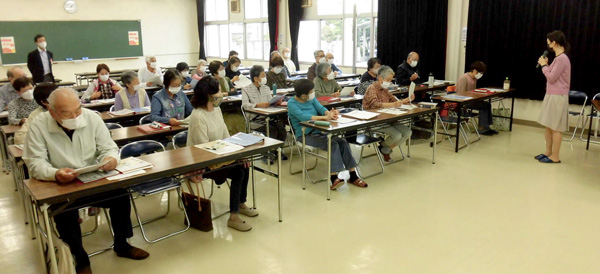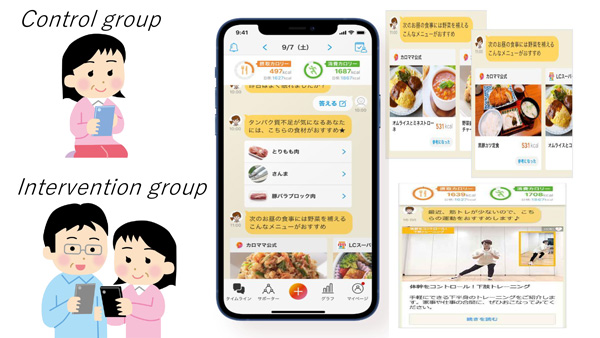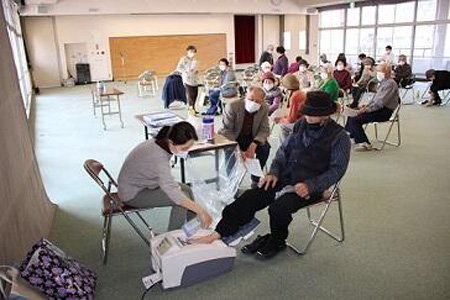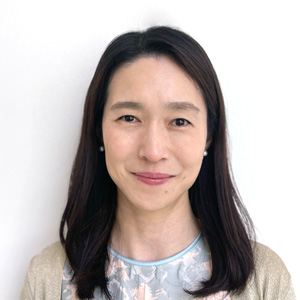Providing care in the mobile health era
Introduction
Japan is facing a super-aged society, with 29.3% of the population aged 65 or older in 2024. Social frailty, including isolation and loneliness, has become a serious issue, especially during the COVID-19 pandemic. To address these issues, our intervention leveraged mobile health (mHealth) apps based on collaboration with local communities. Two years prior to conducting our study, we held workshops in collaboration with community colleges to identify effective intervention designs to provide care to older adults using health apps on smartphones. Thus, this article introduces the ‘Health Support Bubble’, where family members use health apps together, based on Family Systems Theory.

Background
Mobile health (mHealth) apps have shown potential to reduce loneliness, but sustained engagement is a challenge. According to the White Paper on Aging Society in Japan, 44.5% of Japanese people aged 60 or over use smartphones, but the use of health apps remains limited. We collaborated with community centres to hold hands-on sessions offering bone density and joint ultrasound measurements, providing participants with an opportunity to reflect on their health and encouraging greater use of health apps on smartphones.
The problem
Mobile health apps effectively support health management and reduce loneliness, especially through self-management strategies. However, sustaining their use is challenging, particularly without features such as gamification, feedback, and social support. We found that many older adults reported being discouraged by their families from using apps, who wish to protect them from risks such as fraud. Those who were using apps did so under the supervision of family members. As a result, they mentioned that without their family's help, they were unable to even to install an app on their own.

The search for answers
Personalised content and customised experiences improve engagement. Importantly, ‘buddy support’ from family or peers plays a crucial role in maintaining continued use of mHealth apps, making them more effective in addressing social frailty and loneliness, especially among older adults and middle-aged individuals balancing multiple roles.
Results
1. The collaborative use of the ‘Health Support Bubble’ app within families shows promise as a strategy for addressing social frailty.
2. Sustained use of mHealth requires family support and personalised features.
The ‘Health Support Bubble’ offers one approach to care in the mHealth era, applying Family Systems Theory. This approach holds that family members mutually influence one another. The success of our initiative reflects the integration of multiple ways of knowing—linking theory and implementation through collaboration with the local community.
Challenges and lessons learned
To implement evidence into society, collaboration with local community organisations is essential. Understanding the daily lives of local residents and building sustainable relationships with them is also vital. While mHealth improves healthcare access and convenience, it is essential to balance digital tools with human interaction. Ensuring that mHealth complements—not replaces—personal connections helps to preserve the human-centred care crucial for patient wellbeing and positive health outcomes.

Next steps
Next steps would involve expanding the scope of care beyond family members to verify the effectiveness of health support bubbles formed by friends, volunteers and supporters. We plan to hold an open session at the Annual Meeting of the Japan Public Health Association, in collaboration with researchers in implementation science. The session will explore what is needed to translate evidence into community practice by considering the roles of various stakeholders, including local government, business and the media.
Key take-home messages
We obtained evidence on the effects of the world's first AI health app intervention, the ‘Health Support Bubble’, which incorporates the concept of caring centred on companionship and mutual support to address social frailty.
Our research shows how public health researchers can play a role:
1. Maintain their position as partners of local residents.
2. Act as professionals with medical knowledge who can bridge different sectors, such as government and welfare work.
3. Promote the use of statistical methods to assess health at the population level.
4. Recognise that the types of data needed in the field may differ from those sought by researchers and bridge this gap through collaborative research using AI and digital technologies.
5. Coordinate efforts by leveraging Japan's administrative decision-making processes.
In Japan, activities to disseminate evidence into communities are still in the early stages. There is a growing need for initiatives that span the entire process—from developing evidence, implementing it in society, and making policy recommendations.
References
Hayashi C, Tanemura N, Taniguchi M, Okano T, Toyoda H, Mashino S, et al. A randomised controlled trial of mobile intervention using health support bubbles to prevent social frailty. NPJ Digit Med. 2025;8(1):471.
To link to this article - DOI: https://doi.org/10.70253/DHDN8805
Links to additional resources
https://www.u-hyogo.ac.jp/news/news/20250805-1oshirase.html (accessed 2025/9/29)
https://tokuteikenshin-hokensidou.jp/news/2025/014138.php (accessed 2025/9/29)
https://www.u-hyogo.ac.jp/careken/news/info/post-545/index.html (accessed 2025/9/29)
Disclaimer
The views expressed in this World EBHC Day Blog, as well as any errors or omissions, are the sole responsibility of the author and do not represent the views of the World EBHC Day Steering Committee, Official Partners or Sponsors; nor does it imply endorsement by the aforementioned parties.
